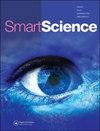Security Restricted Dispatch Optimization Using Improved LDOA Technique: In an Islanded Microgrid System
IF 1.4
Q2 MULTIDISCIPLINARY SCIENCES
引用次数: 0
Abstract
ABSTRACT Microgrids are a single entity that manages several distributed generators and linked networks. This is the most recent study field in which traditional and renewable technologies may be combined to address the difficulties of transmission losses and CO2 emissions. Making microgrids smarter and more efficient requires cost-effective scheduling. As a result, a lot of new technologies are moving in the same direction. The study presented in this paper relates to the optimum scheduling of an islanded microgrid with three conventional DGs, one wind farm, and one solar power plant. A new improved method Levy Dingo Optimization algorithm (LDOA) of already existing technique named as Dingo Optimization algorithm (DOA) is designed and successfully tested on 23 bench-mark functions. Further, this hybrid technique is implemented on Economic load and Emission dispatch, Combined Eco-nomic Emission Dispatch (CEED) by considering various integration of distributed generators which is going to share the load for 24 h. The efficacy of the proposed technique is tested and compared with some current techniques like GWO, PSO, SOS, DE, and WOA as well as with newly developed approaches like DOA. In all four instances, i.e., without taking into account solar energy, without taking into account wind energy, without taking into account renewable energy sources and considering all five sources, the suggested solution outperforms the existing strategies, indicating that it has a lot of potential in this field. Graphical abstract基于改进LDOA技术的孤岛微电网安全约束调度优化
摘要微电网是一个管理多个分布式发电机和链接网络的单一实体。这是最新的研究领域,可以将传统技术和可再生技术相结合,以解决输电损失和二氧化碳排放的困难。使微电网更智能、更高效需要具有成本效益的调度。因此,许多新技术正朝着同一方向发展。本文提出的研究涉及具有三个常规DG、一个风电场和一个太阳能发电厂的孤岛微电网的优化调度。在已有技术的基础上,设计了一种新的改进方法——Levy Dingo优化算法(LDOA),称为Dingo优化法(DOA),并在23个基准函数上成功测试。此外,该混合技术通过考虑将共享24小时负载的分布式发电机的各种集成,在经济负载和排放调度、联合经济排放调度(CEED)上实现。测试了所提出的技术的有效性,并与当前的一些技术如GWO、PSO、SOS、DE进行了比较,以及WOA以及DOA等新开发的方法。在所有四种情况下,即在不考虑太阳能、不考虑风能、不考虑可再生能源和考虑所有五种能源的情况下,建议的解决方案都优于现有战略,表明它在该领域具有很大潜力。图形摘要
本文章由计算机程序翻译,如有差异,请以英文原文为准。
求助全文
约1分钟内获得全文
求助全文
来源期刊

Smart Science
Engineering-Engineering (all)
CiteScore
4.70
自引率
4.30%
发文量
21
期刊介绍:
Smart Science (ISSN 2308-0477) is an international, peer-reviewed journal that publishes significant original scientific researches, and reviews and analyses of current research and science policy. We welcome submissions of high quality papers from all fields of science and from any source. Articles of an interdisciplinary nature are particularly welcomed. Smart Science aims to be among the top multidisciplinary journals covering a broad spectrum of smart topics in the fields of materials science, chemistry, physics, engineering, medicine, and biology. Smart Science is currently focusing on the topics of Smart Manufacturing (CPS, IoT and AI) for Industry 4.0, Smart Energy and Smart Chemistry and Materials. Other specific research areas covered by the journal include, but are not limited to: 1. Smart Science in the Future 2. Smart Manufacturing: -Cyber-Physical System (CPS) -Internet of Things (IoT) and Internet of Brain (IoB) -Artificial Intelligence -Smart Computing -Smart Design/Machine -Smart Sensing -Smart Information and Networks 3. Smart Energy and Thermal/Fluidic Science 4. Smart Chemistry and Materials
 求助内容:
求助内容: 应助结果提醒方式:
应助结果提醒方式:


